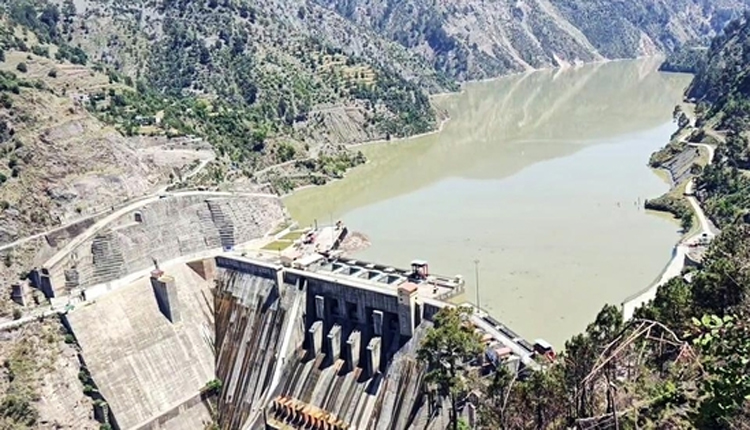New Delhi: The Baglihar Dam water flow on the Chenab River has been paused by India because of ongoing tensions with Pakistan following their agreement to halt the Indus Waters Treaty. A state authority confirmed this move follows the April 22 Pahalgam terror incident, which ended with 26 casualties, mostly consisting of tourists in Baisaran Valley within Jammu and Kashmir. Government officials consider implementing comparable water restrictions at the Kishanganga Dam on the Jhelum River for operational pressure against Pakistan through Indian hydroelectric infrastructure.
Ramban district in Jammu hosts Baglihar Hydroelectric Power Plant that functions together with Kishanganga Hydroelectric Power Plant in north Kashmir to allow India the ability to regulate water flow to Pakistan. These facilities grant India substantial power, which the authorities have started using since suspending the treaty, according to PTI sources. Under the World Bank-mediated Indus Waters Treaty, India controls the eastern rivers of Ravi, Beas, and Sutlej, together with the responsibility to manage the western rivers of Indus, Jhelum, and Chenab. Run-of-the-river power projects in India have consistently raised conflicts between the two nations because Pakistan maintains they affect water availability in the lower course.
Since the Pahalgam attack by The Resistance Front (TRF), which is linked to Lashkar-e-Taiba based in Pakistan, India initiated several countermeasures that included stopping water flow. The diplomatic conflict between India and Pakistan includes a complete trade cutoff as well as port restrictions that eliminate Pakistani vessels and airspace barriers preventing Pakistani airlines. The defence ministry received full authority for operational decisions from Prime Minister Narendra Modi, while Defence Minister Rajnath Singh confirmed the forceful approach India is taking.
Pakistan condemns Indian actions towards the Indus system as aggressive because the region depends heavily on Indus water for agriculture. Pakistan’s attention to the World Bank arbiters regarding the Baglihar and Kishanganga dams stemmed from its concerns about the reduced water output. The upcoming restrictions regarding Kishanganga releases by India will severely damage Pakistan’s economic operations.
The suspension of hydrological data transmission by India according to the treaty created additional challenges for Pakistan to properly handle its water supply. The current river level information until April 30 does not reflect a sudden drop, but India’s long-term water strategy might produce severe consequences for Pakistan’s farming industry and flood protection operations. India continues tightening its control over the Chenab River while considering its next moves against the Jhelum River system, which creates widespread tension amongst the affected areas due to unresolved Pahalgam-related anger.



Comments are closed.